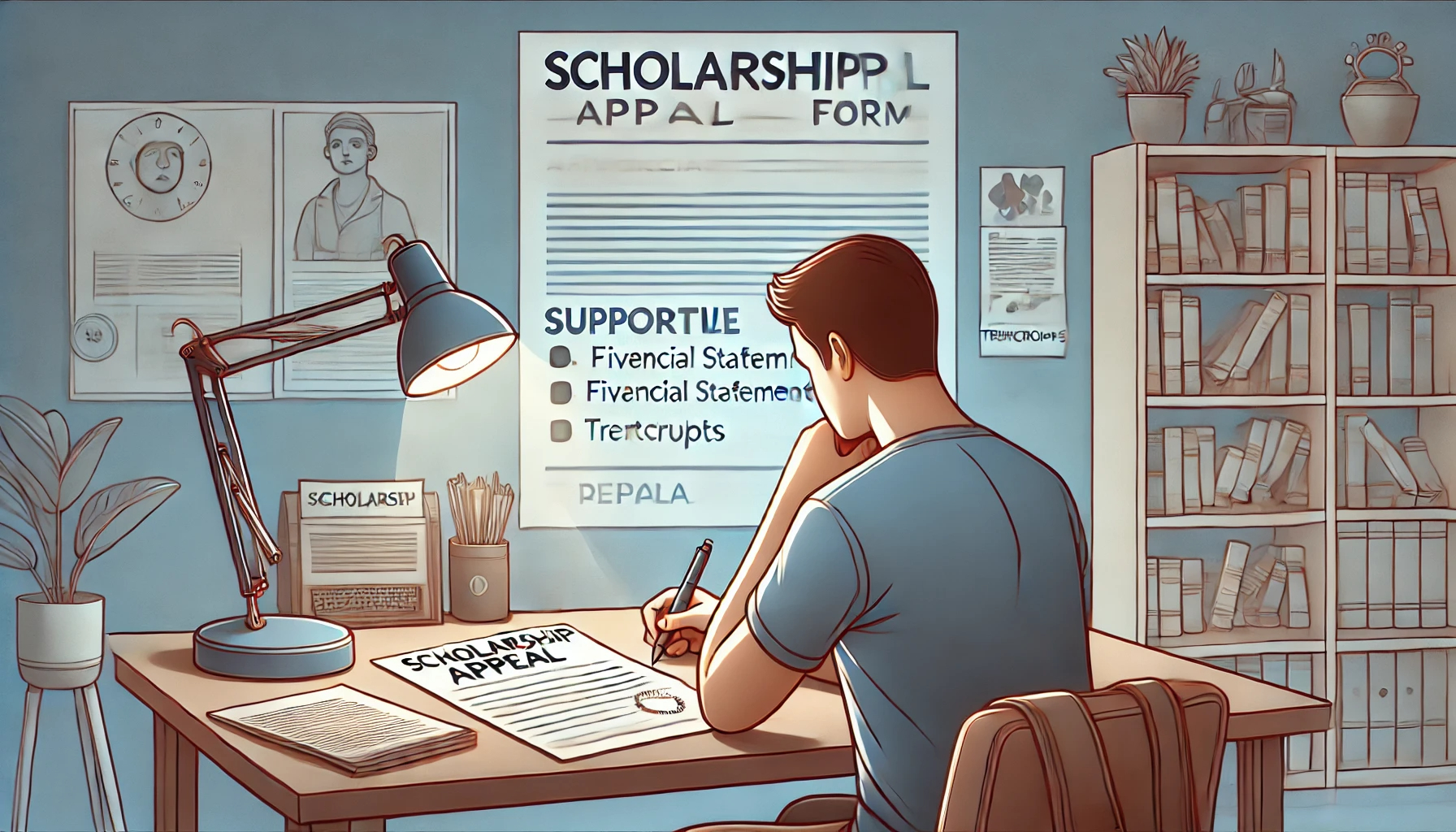How to Write a Scholarship Appeal Form: A Comprehensive Guide
Receiving news that you did not get the scholarship you were hoping for can be disheartening. However, many institutions offer the opportunity to appeal the decision through a scholarship appeal form. A well-crafted appeal can sometimes lead to a reconsideration of your application, but it’s essential to approach the process thoughtfully and professionally. This guide will walk you through how to write an effective scholarship appeal form, increasing your chances of success.
1. Understanding the Scholarship Appeal Process
Before you start writing your appeal, it's important to understand the appeal process for the specific scholarship program. Each institution may have different guidelines, deadlines, and requirements for appeals. Here are some general steps to follow:
Check Eligibility: Not all scholarships offer an appeal process. Ensure that the scholarship you applied for allows appeals and that you meet the criteria for submitting one.
Understand the Reasons for Denial: Review the reasons provided for your scholarship denial. Common reasons include incomplete applications, failure to meet eligibility criteria, or limited funds. Understanding the specific reason can help you address it effectively in your appeal.
Gather Supporting Documents: If your appeal is based on financial need, academic performance, or other personal circumstances, gather all relevant documentation that supports your case.
2. When to Appeal a Scholarship Decision
Consider submitting a scholarship appeal if:
Your financial situation has changed: If there has been a significant change in your financial situation since you applied, such as a loss of income or unexpected expenses, this may be a valid reason to appeal.
You have new academic achievements: If you have received new grades, test scores, or academic awards since your initial application, these could strengthen your appeal.
There were errors in your application: If you believe there was an error in how your application was reviewed, or if you accidentally omitted important information, an appeal could help rectify the situation.
You have extenuating personal circumstances: If you have faced significant personal challenges (e.g., health issues, family emergencies) that impacted your application, these can be grounds for an appeal.
3. How to Write a Scholarship Appeal Form
When writing a scholarship appeal, your goal is to clearly and respectfully present your case. Here’s a step-by-step guide to help you craft a compelling appeal:
a. Start with a Formal Greeting:
Address your appeal to the scholarship committee or the specific person handling appeals.
Example:
Dear Scholarship Committee,
b. Introduce Yourself:
Briefly introduce yourself, including your full name, the scholarship you applied for, and your application ID if applicable.
Example:
My name is Jane Doe, and I recently applied for the ABC Scholarship for the 2024 academic year. My application ID is 123456.
c. State the Purpose of Your Appeal:
Clearly state that you are writing to appeal the decision regarding your scholarship application.
Example:
I am writing to formally appeal the decision not to award me the ABC Scholarship. I would like to provide additional information that I believe may not have been considered in the initial review of my application.
d. Explain the Grounds for Your Appeal:
This is the most important part of your appeal. Provide a clear and concise explanation of why you believe the decision should be reconsidered. Be specific and provide evidence to support your case.
Example:
Since submitting my application, my family's financial situation has significantly changed. My father recently lost his job, and our household income has decreased by 40%. This unforeseen circumstance has placed a considerable financial burden on our family, making it increasingly difficult for me to afford my college education without additional financial support.
Additionally, I have recently received my final grades for the semester, which reflect significant academic improvement. I achieved a GPA of 3.9, which I believe demonstrates my commitment to academic excellence.
e. Provide Supporting Documentation:
Mention any documents you are including with your appeal, such as financial statements, letters from employers, or updated transcripts.
Example:
I have attached a letter from my father's employer confirming his job loss, along with my most recent academic transcript.
f. Express Gratitude:
Thank the committee for considering your appeal and for their time.
Example:
Thank you very much for taking the time to review my appeal. I sincerely appreciate your consideration and hope that my circumstances will allow for a reconsideration of my scholarship application.
g. Close Formally:
End your appeal with a formal closing, followed by your signature (if submitting a hard copy) and contact information.
Example:
Sincerely,
Jane Doe
[Your Contact Information]
4. Tips for a Successful Scholarship Appeal
Be Clear and Concise: Stick to the relevant facts and avoid unnecessary details. Your appeal should be focused and easy to read.
Stay Professional: Maintain a respectful and polite tone throughout your appeal. Avoid expressing frustration or anger, as this can detract from your case.
Follow the Guidelines: Ensure you adhere to any specific instructions or deadlines provided by the scholarship program for submitting appeals.
Proofread: Carefully proofread your appeal for spelling, grammar, and clarity. A well-written appeal demonstrates your attention to detail and seriousness about the scholarship.
5. Final Thoughts
Submitting a scholarship appeal form is an opportunity to provide additional information that may not have been considered during the initial review of your application. By carefully explaining your circumstances, providing supporting documentation, and maintaining a professional tone, you can increase your chances of a successful appeal.
Remember that not all appeals will be successful, but taking the time to craft a thoughtful and well-supported appeal is always worth the effort. Even if the outcome is not what you hoped for, the experience of advocating for yourself can be valuable in future applications and endeavors.









